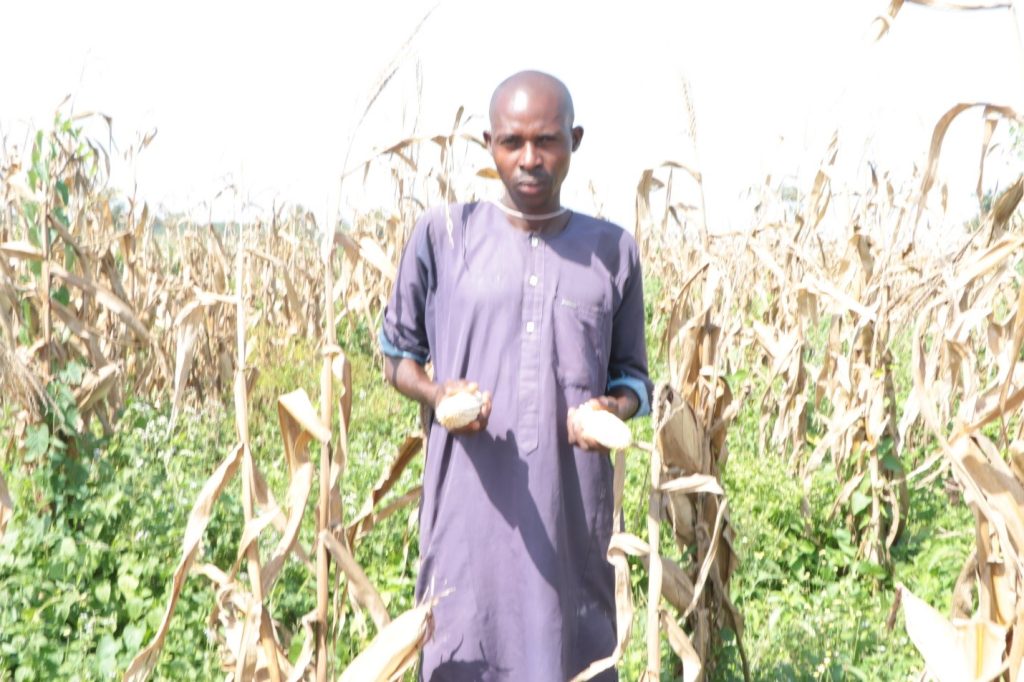
A new study has confirmed that TELA Maize hybrids are significantly boosting farm yields, increasing profits and reducing pest-related losses for Nigerian farmers, offering a promising path to food security and climate resilience.
The study, conducted during the 2024 wet season by the African Agricultural Technology Foundation (AATF) and partners, found that TELA maize hybrid SAMMAZ 75T delivered average yields of 5.09 tons per hectare – a 54 per cent increase compared to the 3.30 tons harvested from conventional varieties. This jump in productivity translated into ₦3.16 million in income per hectare for TELA maize, far exceeding the ₦2.05 million earned from non-TELA crops.
The field trials, which involved 120 farmers across multiple locations, were designed to assess real-world performance ahead of the January 2024 commercialisation of four TELA maize hybrids – SAMMAZ 72T, 73T, 74T and 75T — developed by scientists at the Institute for Agricultural Research (IAR), Ahmadu Bello University, Zaria. These varieties are genetically bred to resist fall armyworm, stem borers and drought conditions – factors that routinely undermine food production across Nigeria.
Each participant cultivated 0.5 hectares of TELA maize alongside 0.5 hectares of conventional maize. A total of 1.5 tons of seed was distributed for the on-farm demonstration. The results highlighted TELA maize’s superior performance, not only in yields but also in pest resistance, reduced pesticide application, and overall farm efficiency.
TELA maize plots averaged just 1.3 pesticide sprays per season, compared to 2.1 sprays on conventional plots. Only 22 per cent of TELA farmers reported pest damage, versus 86 per cent of non-TELA farmers, some of whom suffered up to 66 per cent crop loss.
“These findings validate earlier national performance trials,” said the principal investigator for the TELA Maize Project, Prof. Rabiu Adamu. “No TELA maize farms recorded damage beyond one-third of their crops. In contrast, non-TELA farms experienced significant losses, with some losing two-thirds of their yield.”
The economic advantage was equally compelling. TELA plots generated over ₦1.1 million more per hectare, driven by higher yields and lower costs associated with chemicals and labour. In dollar terms, TELA farmers earned approximately $2,098.42 per hectare, compared to $1,360.47 from conventional maize.
AATF’s project manager for TELA Maize, Dr. Sylvester Oikeh described the outcome as a breakthrough for sustainable agriculture in Nigeria. “TELA maize marks a turning point for smallholder farmers. It combines climate resilience with profitability, offering higher returns and reducing dependence on chemical inputs,” he said.
Farmers echoed these sentiments. About 90 per cent of participants reported satisfaction with TELA performance, citing benefits like uniform germination, rapid growth, reduced pest pressure and ease of cultivation.
“With TELA, I didn’t have to spray as often, and yet my harvest was better than before. It saved me time, money, and stress,” said one farmer.
The study’s success reinforces calls for wider adoption of climate-smart agriculture and modern biotechnology to strengthen Nigeria’s food system. With mounting threats from climate change, pests, and soil degradation, TELA maize is increasingly seen as a strategic solution for food security and rural livelihoods.
“TELA maize is not just another seed,” Oikeh stressed. “It’s a powerful tool that empowers farmers to thrive, protect their crops naturally, and contribute to national food goals.”
The research also highlights the importance of continued investment in agricultural innovation, farmer education and evidence-based policies. Experts say a broader rollout of TELA maize could reshape maize production in Nigeria and serve as a model for similar interventions across sub-Saharan Africa.
The African Agricultural Technology Foundation (AATF) was established in 2003 to promote food security in Africa through the access and delivery of agricultural technologies. AATF facilitates partnerships to support innovation and equips smallholder farmers with science-backed tools for sustainable farming. Learn more at www.aatf-africa.org.


